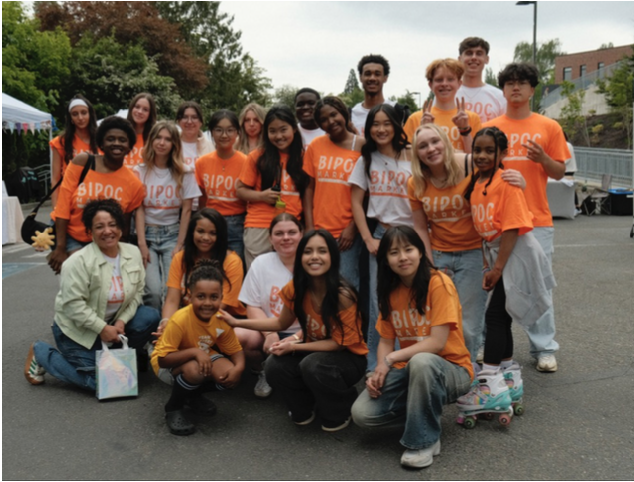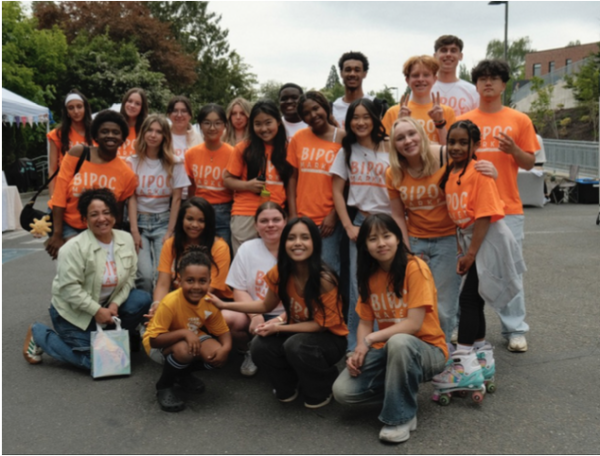Paying College Athletes
December 7, 2019
California governor Gavin Newsom signed a bill on September 28 that would allow college athletes to make endorsement deals and hire agents, to take effect in 2023. The bill goes against the National Collegiate Athletic Association (NCAA) rule that college athletes cannot get paid for their work beyond the costs of attending the university. The NCAA has called the bill unconstitutional and urges California to reconsider, with the hopes of maintaining the sports industry’s cohesiveness.
In 2018, the college sports industry collectively generated $14 billion. The college students fueling this industry are in many ways working real jobs and putting themselves in harm’s way and are not directly compensated for doing so. The majority of college athletes do not go on to become professionals, meaning they will never be paid for their athletic dedication.
Governor Newsom made the point that any other college student can profit off of their name, through a monetized Youtube channel or other method, except for college athletes. Jake Guadnola, Director of the Upper School for Girls and a former basketball player and Hall of Fame inductee for D3 Pomona College, echoed this sentiment. “If I am a big recruit and I could somehow sell shirts with my name on it…why would I not be able to do that?”, he mused.
Director of Athletics Mike Finch had similar views. “I’m in favor of video game companies like EA Sports paying athletes for use of their image, bio, avatar, etc. I’m also in favor of the NCAA paying athletes to be in their promo commercials, etc,” he said.
It was on the basis of this idea that Finch, who played football for Harvard University, participated in a class action lawsuit against EA Sports for their use of his image and athletic information in the 2003, 2004, and 2005 editions of their NCAA football video game. He was awarded approximately $2,000 as a result.
Opinion of future D1 athlete Kaitlin Tan
Before starting anything, I want to preface by saying that I don’t know all of the nuances to this bill and all its implications. Personally, I think that allowing college athletes to get paid via endorsements and advertisements would be greatly beneficial to college athletes.
College sports is a multi-million dollar industry where colleges, coaches and advertising organizations profoundly profit off of athletes. The highest paid college coach makes a salary of 8.3 million dollars per year with a maximum bonus of 1.1 million dollars. As an institution, colleges gain clout for having strong sports teams which translates to revenue through large applicant pools, ticket revenue, and having the ability to attach their name to marketable athletes. And yet, in all of this, these athletes that are generating revenue and clout for coaches and institutions are gaining virtually nothing in comparison to their counterparts.
Yes, while these athletes are able to receive a debt-free education, room and board, and other services that non-athlete students would have to pay for in exchange for their work, the amount of work that is demanded from these athletes combined with the disproportionate gains between the coaches and athletes, I believe, does not equal the education they are given especially when these marketable, top-talent athletes are being told by their coaches that their sport should be a higher priority than their education.
The life of a college athlete is busy. As an incoming Division 1 college athlete, I know that a lot will be expected of me. I know that I have lift in the early morning, practice for 3 hours in the afternoon, conditioning after practice, and on top of that, have to study and keep my grades up. So, I can only imagine the intensity of the schedule of a high revenue generating college football or basketball player, in addition with the large physical strain these schedules put on them.
With schedules like these and the physical strain on athletes that enable college sports to become a multi-billion industry, it seems like the athletes are always working to fulfill the expectations of college life. In addition to this, it seems that the only actors who benefit are the coaches, institutions, and endorsers who are able to profit from the work that the athletes are producing for the public. Therefore, it just makes sense. Why should everyone in the sports scene and college scene be able to gain so much while the actual “talent” is left no monetary gain or even an opportunity to gain?
Allowing college athletes to receive monetary funds through endorsements and agency does, however, shift the focus of college athletics. College athletes could become more focused on marketing themselves and connecting with agencies and endorsements rather than their sport, which could be problematic because, while schools aren’t the protagonist in this situation, college athletes are supposed to be focused on their sport and contributing to their team and the school.
Also, in terms of having equal opportunity to gain money, athletes of sports that gain the most revenue, in many cases, football or basketball, will be able to get the most money due to the fact that endorsers and advertisers will want to attach their name to athletes with their publicity. Athletes of “less popular” sports will be put at a disadvantage in this situation and will have a more difficult time signing with agencies and endorsers. This can potentially create more divides in the already existing hierarchy between athletes of different sports.
However, I think everything is fair game. Connecting to agencies never occurred to me, but by enabling athletes the opportunity to have endorsement deals, it gives an avenue for athletes to gain some of the revenue generated in the sporting industry. It also allows college athletes aspiring to become professional athletes a foundation off of which to kick start their career.









